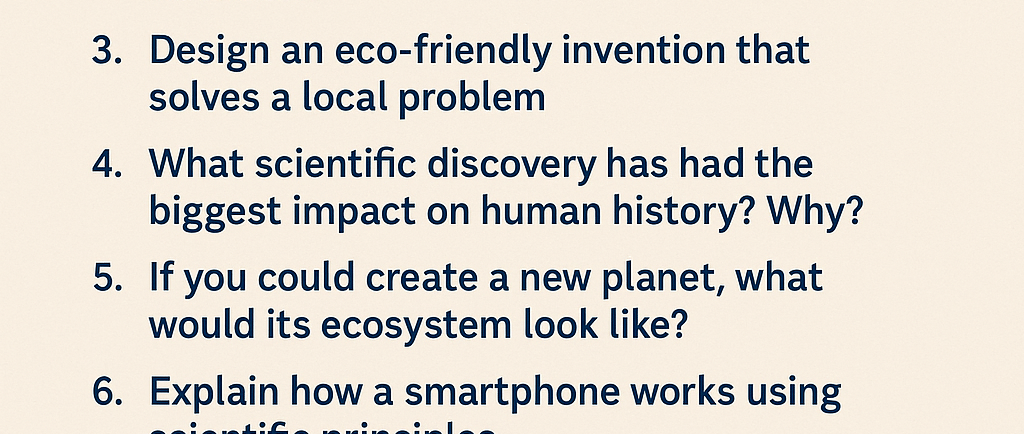Top 10 Prompts for Science Education for Students


Science education shapes curious minds and future innovators. By using well-designed prompts, educators can inspire deeper thinking, creativity, and inquiry-based learning. Here are 10 powerful science prompts that stimulate critical thinking and enhance classroom engagement for students of all ages.
1. What if gravity suddenly became twice as strong?
This imaginative prompt helps students explore forces, Newton’s laws, and the impact of gravity on daily life, biology, and technology.
2. How would life be different if Earth had no moon?
Students can dive into astronomy, tides, evolution, and planetary science while examining the moon’s role in stabilizing Earth.
3. Design an eco-friendly invention that solves a local problem.
Encourages application of environmental science, engineering principles, and problem-solving for real-world challenges.
4. What scientific discovery has had the biggest impact on human history? Why?
Students analyze historical and modern discoveries—from penicillin to the internet—connecting science with society.
5. If you could create a new planet, what would its ecosystem look like?
Fosters understanding of biology, ecosystems, climate, and adaptation in a creative context.
6. Explain how a smartphone works using scientific principles.
Connects physics, chemistry, and electronics with everyday technology, making science relevant and relatable.
7. Can humans ever live forever? Discuss the science and ethics.
Explores biology, medicine, genetics, and bioethics, sparking discussion on life extension, cloning, and AI.
8. Why do some animals glow in the dark (bioluminescence)?
A fun way to introduce biochemical reactions, marine biology, and adaptation in nature.
9. What would happen if all insects disappeared overnight?
Encourages ecological thinking, food chains, biodiversity, and the role of insects in the environment.
10. Describe a science experiment you would like to conduct and what you hope to discover.
Fosters inquiry-based learning, hypothesis formation, and an understanding of the scientific method.
⸻
These prompts not only engage students but also help develop scientific reasoning, creativity, and cross-disciplinary thinking. They can be used in class discussions, essays, projects, or science fairs to ignite passion for science.
